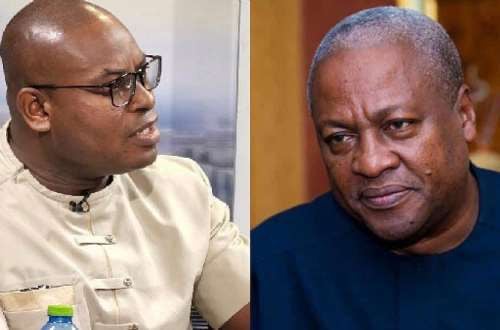The political landscape in Ghana has witnessed rising tensions between the ruling National Democratic Congress (NDC) and the opposition New Patriotic Party (NPP), marked by accusations of undemocratic practices and targeted harassment. Richard Ahiagbah, the National Communications Director of the NPP, has publicly condemned the John Mahama-led administration for allegedly employing intimidation tactics against opposition figures, creating an environment of fear and undermining the principles of democratic governance. Ahiagbah argues that this alleged abuse of power is a blatant disregard for the rights and liberties of Ghanaians and reflects a concerning trend of political persecution. He urges NPP members to remain resilient in the face of these challenges and to focus on reclaiming power through democratic means in the next general election.
Ahiagbah’s accusations stem from a series of incidents that have heightened concerns about the political climate in Ghana. The arrest of Alfred Ababio Kumi, a prominent NPP member known as Adenta Kumi, sparked outrage within the opposition party. Eyewitnesses described the arrest, conducted by officials of the National Intelligence Bureau (NIB), as a heavy-handed operation reminiscent of a “Rambo-style” raid. Kumi’s arrest followed his petition to President Mahama calling for the dissolution of a committee investigating calls for the removal of Chief Justice Gertrude Torkonoo. Kumi’s petition alleged an improper informal meeting between three committee members and a lawyer involved in the case, raising questions about the impartiality and integrity of the proceedings.
Adding to the growing tension, the NPP also denounced what it described as an unwarranted intrusion into the residence of its Ashanti Regional Chairman, Bernard Antwi Boasiako, also known as Chairman Wontumi. The alleged involvement of police officers and National Security operatives in this incident further fueled the NPP’s claims of targeted harassment. These incidents, according to Ahiagbah, represent a deliberate attempt by the Mahama administration to silence dissenting voices and suppress political opposition rather than addressing the pressing needs of the Ghanaian people.
Ahiagbah contends that the government’s focus on intimidating its opponents distracts from the critical issues facing the nation, such as unemployment, illegal mining (galamsey), and economic revitalization. He argues that the NDC government should prioritize improving the living conditions of Ghanaians and creating opportunities for the youth instead of deploying state security apparatus against political rivals. He emphasizes that such actions not only undermine democratic principles but also create an environment of fear and instability, hindering the country’s progress.
The NPP’s accusations against the Mahama administration underscore the fragility of democratic institutions and the importance of upholding the rule of law. The alleged harassment of opposition figures raises serious concerns about the government’s commitment to respecting fundamental rights and freedoms. Ahiagbah stresses the need for a political environment that protects and promotes the rights of all citizens, regardless of their political affiliations. He calls for a transition to a more inclusive and tolerant political landscape where dissenting voices are not stifled but rather engaged in constructive dialogue.
The unfolding events in Ghana highlight the ongoing struggle to consolidate democratic gains and the imperative for all political actors to uphold the principles of accountability, transparency, and respect for human rights. The NPP’s call for a return to a more democratic and just political environment resonates with the broader aspirations of Ghanaians who seek a future where their voices are heard and their rights are protected. The accusations of political harassment serve as a stark reminder of the vigilance required to safeguard democratic values and prevent the erosion of fundamental freedoms. The path forward requires a commitment from all stakeholders to engage in constructive dialogue, foster mutual respect, and prioritize the well-being of the nation over partisan interests.














